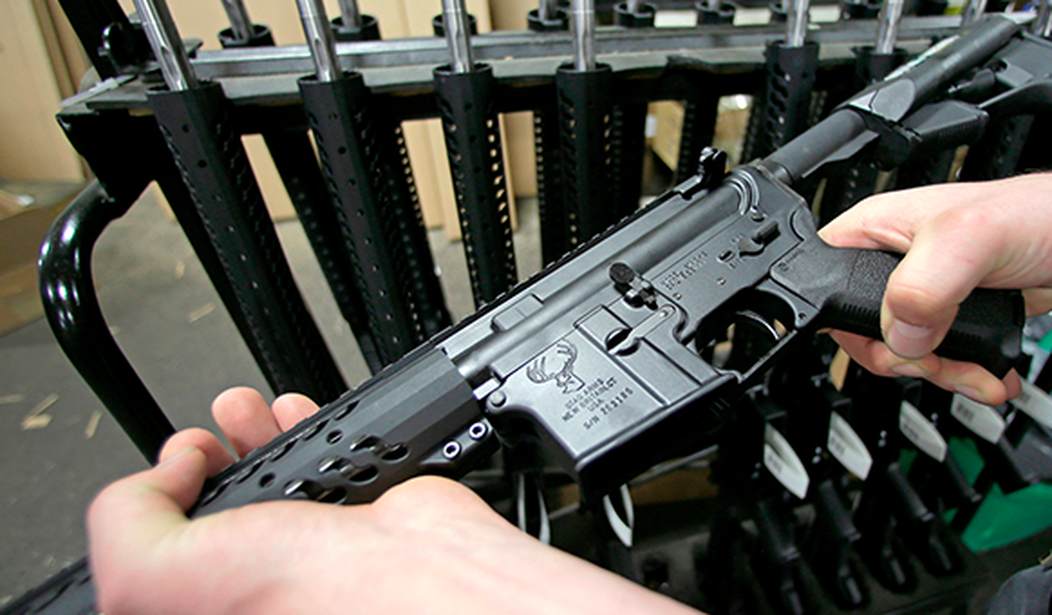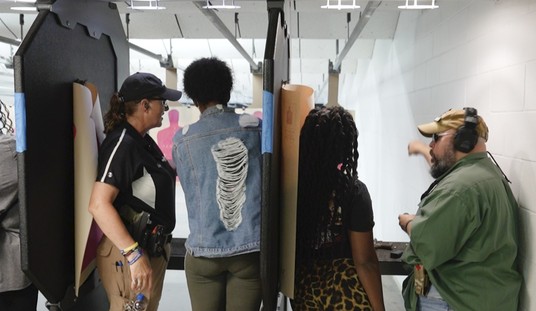AR-15s are problematic in Massachusetts. While they’re the most popular firearm in the country and clearly fall under protections outlined in Heller, they’re still effectively banned in the state.
We all know that such a ban is unconstitutional. I already know there will be an obligatory comment that all gun laws are unconstitutional–a fact I don’t disagree with, for the record–but such rhetoric isn’t going to win in a court of law, and that’s where some battles need to be won. Especially in anti-gun strongholds like Massachusetts.
However, the Cato Institute knows how to make those arguments in a way that courts might actually listen, and they just did regarding the Massachusetts assault weapon ban.
Massachusetts law currently prohibits ownership of “assault weapons,” the statutory definition of which includes the most popular semi-automatic rifles in the country, as well as “copies or duplicates” of any such weapons. As for what that means, your guess is as good as ours. A group of plaintiffs, including two firearm dealers and the Gun Owners’ Action League, challenged the law as an unconstitutional violation of their Second Amendment rights. Unfortunately, both a federal trial judge and appellate court upheld the ban—though they could not agree on why.
The trial judge followed the lead of the Maryland case of Kolbe v. Hogan (in which Cato filed a brief supporting a petition to the Supreme Court), misconstruing from a shred of the landmark 2008 Supreme Court opinion in District of Columbia v. Heller that the test for whether a class of weapons could be banned was whether it was “like an M-16.” Meanwhile, the U.S. Court of Appeals for the First Circuit (in which Cato also filed a brief), conjured up a complex interest-balancing test that boiled down to a much simpler question: is it like a handgun? If not, the weapon is not sufficiently “well-suited” to self-defense in the home and can be banned. Both tests contravene the core holding of Heller that all weapons in common civilian use are constitutionally protected.
The plaintiffs are now asking the Supreme Court to hear their case. Cato, joined by several organizations interested in the protection of our civil liberties, has filed an amicus brief supporting the plaintiffs’ petition. We discuss how the federal circuit courts have, absent further guidance from the Supreme Court, stumbled around in the dark in their attempts to apply Heller’s “common use” test.
Although the courts have uniformly looked to statistical data of some form in establishing common use, they have been unable to agree on what the relevant statistic is. The total number of the banned weapons owned, the percentage the banned weapons constitute of the total national arms stock, and the number of jurisdictions in which the banned weapons are lawful have all been used to determine the breadth of constitutional protection. By any metric, however, the weapons banned by the Massachusetts law are clearly in “common use.”
I’ve already quoted more here than I really like to in order to give you ua picture of what Cato is saying, so I urge you to go and read the rest of the post.
They’re absolutely right, too. By any metric you want to use, the so-called “assault weapon” is a firearm in common use throughout the nation. Based on Heller, any bans on such weapons are unconstitutional. (Are you listening, Beto?)
It’s absolutely imperative that the Courts recognize this. My hope is that the Supreme Court hears this and strikes down such bans. Preferably, they rule broadly enough to also cover idiocy like the California assault weapon ban while they’re at it.
I don’t know that they will, mind you, but a guy can dream, can’t he?








Join the conversation as a VIP Member